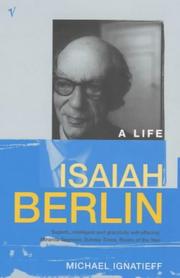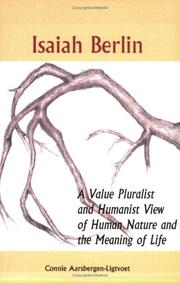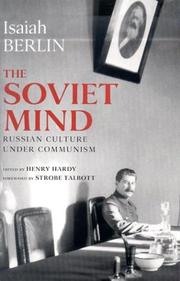| Listing 1 - 10 of 14 | << page >> |
Sort by
|
Multi
ISBN: 9781843834533 9781846156953 9781843838760 Year: 2009 Publisher: Woodbridge The Boydell Press
Abstract | Keywords | Export | Availability | Bookmark
 Loading...
Loading...Choose an application
- Reference Manager
- EndNote
- RefWorks (Direct export to RefWorks)
Book
ISBN: 9781786838957 9781786838964 Year: 2022 Publisher: Cardiff University of Wales Press
Abstract | Keywords | Export | Availability | Bookmark
 Loading...
Loading...Choose an application
- Reference Manager
- EndNote
- RefWorks (Direct export to RefWorks)
Book
ISBN: 2866450779 9782866450779 Year: 1990 Publisher: Paris Félin
Abstract | Keywords | Export | Availability | Bookmark
 Loading...
Loading...Choose an application
- Reference Manager
- EndNote
- RefWorks (Direct export to RefWorks)

ISBN: 9780099577317 Year: 2000 Publisher: London Vintage
Abstract | Keywords | Export | Availability | Bookmark
 Loading...
Loading...Choose an application
- Reference Manager
- EndNote
- RefWorks (Direct export to RefWorks)
Book
ISBN: 9781138724822 9781351754378 1351754378 9781315192208 1315192209 9781351754385 1351754386 9781351754361 135175436X Year: 2021 Publisher: New York, N.Y. Routledge, Taylor & Francis Group
Abstract | Keywords | Export | Availability | Bookmark
 Loading...
Loading...Choose an application
- Reference Manager
- EndNote
- RefWorks (Direct export to RefWorks)
Value pluralism is the idea, most prominently endorsed by Isaiah Berlin, that fundamental human values are universal, plural, conflicting, and incommensurable with one another. Incommensurability is the key component of pluralism, undermining familiar monist philosophies such as utilitarianism. But if values are incommensurable, how do we decide between them when they conflict?George Crowder assesses a range of responses to this problem proposed by Berlin and developed by his successors. Three broad approaches are especially important: universalism, contextualism, and conceptualism. Crowder argues that the conceptual approach is the most fruitful, yielding norms of value diversity, personal autonomy, and inclusive democracy. Historical context must also be taken into account. Together these approaches indicate a liberal politics of redistribution, multiculturalism, and constitutionalism, and a public policy in which basic values are carefully balanced.The Problem of Value Pluralism: Isaiah Berlin and Beyond is a uniquely comprehensive survey of the political theory of value pluralism and also an original contribution by a leading voice in the pluralist literature. Scholars and researchers interested in the work of Berlin, liberalism, value pluralism, and related ideas will find this a stimulating and valuable source.
Values. --- Pluralism. --- Berlin, Isaiah, --- Political and social views. --- Political philosophy. Social philosophy --- Berlin, Isaiah
Book
ISBN: 9780691182261 9780691226132 Year: 2021 Publisher: Princeton, N.J. Princeton University Press
Abstract | Keywords | Export | Availability | Bookmark
 Loading...
Loading...Choose an application
- Reference Manager
- EndNote
- RefWorks (Direct export to RefWorks)
Political philosophy. Social philosophy --- Berlin, Isaiah --- Arendt, Hannah
Digital
ISBN: 9783030731786 9783030731793 9783030731809 9783030731779 Year: 2021 Publisher: Cham Palgrave Macmillan
Abstract | Keywords | Export | Availability | Bookmark
 Loading...
Loading...Choose an application
- Reference Manager
- EndNote
- RefWorks (Direct export to RefWorks)
This book sets out to identify the nature and implications of a proper understanding of pluralism in a original and illuminating way. Isaiah Berlin believed that a recognition of pluralism is vital to a free, decent and civilised society. By looking below at the often neglected foundations of Berlin's celebrated account of moral pluralism, Lyons reveals the more philosophically profound aspects of his undogmatic and humanistic liberal vision. He achieves this by comparing Berlin's core ideas with those of several of his most distinguished philosophical contemporaries, an exercise which yields not only a deeper grasp of Berlin and several major twentieth-century thinkers, principally A. J. Ayer, J. L. Austin, P. F. Strawson, Bernard Williams and Quentin Skinner, but, more broadly, a keener appreciation of the power of history and philosophy to help us make sense of our predicament.
Theory of knowledge --- History of philosophy --- filosofie --- geschiedenis --- analytische filosofie --- Berlin, Isaiah
Digital
ISBN: 9789811327933 9789811327926 Year: 2019 Publisher: Singapore Palgrave Pivot
Abstract | Keywords | Export | Availability | Bookmark
 Loading...
Loading...Choose an application
- Reference Manager
- EndNote
- RefWorks (Direct export to RefWorks)
"Confronting a series of caricatures of Isaiah Berlin, three insightful scholars ponder his relevance for our own time. Was Berlin’s ‘Cold War liberalism’ also an attempt at relentless criticism of liberal complacency? Far from propounding a dogmatic liberalism, did Berlin not acknowledge, alongside a ‘moral minimum,” the necessity of political compromise? Whatever the answers, this book successfully redeems Berlin for continuing engagement in a new era." —Samuel Moyn, Yale University "As we settle into a new century of global conflict, the contours of the one just ended are snapping into focus. This volume casts fresh light on one of that century's most humanist observers: Isaiah Berlin. Through historical and philosophical exploration, the three authors here ask us to consider Berlin and his legacy anew, asking what he meant in his time, and what he might mean for us." —James Chappel, Duke University "A very stimulating volume that places Berlin’s thought in the post-war context without reducing it to a mere expression of its time. The essays help us to see that it was as much Berlin's “untidy” exploration of political psychology as his principles that expressed the liberalism he cherished." —Mark Lilla, Columbia University This book offers a critical re-examination of Berlin’s Cold War liberalism, at a time when many observers worry about the emergence of new global, partly ideologically driven conflicts. Jan-Werner Müller is a professor of politics at Princeton University.
Political philosophy. Social philosophy --- Polemology --- geschiedenis --- politieke filosofie --- Europese politiek --- polemologie --- vrede --- koude oorlog --- Berlin, Isaiah --- Europe

ISBN: 9042019298 9789042019294 9401202613 142379088X 9789401202619 9781423790884 Year: 2006 Volume: 27 Publisher: Amsterdam Rodopi
Abstract | Keywords | Export | Availability | Bookmark
 Loading...
Loading...Choose an application
- Reference Manager
- EndNote
- RefWorks (Direct export to RefWorks)
Value pluralism, a philosophical perspective belonging to the humanist and liberal family, is meeting with increasing attention and support in contemporary political and moral philosophy. Its starting point is that (personal and social) human life is characterized by conflict between the various (good) values and ends that are pursued. Value pluralism takes cultural and moral diversity seriously and thereby also denies the validity of - in their view - potentially dangerous monisms that promise a perfect, tension-free human life. But does value pluralism itself not lead to another danger -that of moral relativism and questioning the meaning of human life itself? This study describes the anthropology of Sir Isaiah Berlin (1909-1997), value pluralism's founding father. Berlin wants to protect both moral and cultural diversity against monist tendencies but at the same time struggles to avoid moral relativism. This study follows Berlin critically in this dilemma, thereby giving insight into how value pluralism differs from contemporary postmodernist and conventionalist positions. Through this study profound insight can be gained into the anthropological assumptions behind value pluralism. This study reveals the basic assumptions in Western and liberal thought that often remain implicit and hidden, leading to much misunderstanding and conflict. Berlin's ideas can enrich existing theories of pluralism and contribute to intercultural and interreligious dialogue. And, last but not least, Berlin's value pluralism helps us to understand the roots of ideologically and religiously inspired violence.
Philosophy and psychology of culture --- Religious studies --- Berlin, Isaiah --- Political science --- Pluralism --- Liberalism --- Science politique --- Pluralisme (Philosophie) --- Libéralisme --- Philosophy --- Philosophie --- Berlin, Isaiah, Sir --- Berlin, Isaiah, --- Ethics. --- Philosophical Anthropology. --- Pluralism. --- Worldview. --- Monadology --- Monism --- Reality --- Anthropology, Philosophical --- Man (Philosophy) --- Civilization --- Life --- Ontology --- Humanism --- Persons --- Philosophy of mind --- Deontology --- Ethics, Primitive --- Ethology --- Moral philosophy --- Morality --- Morals --- Philosophy, Moral --- Science, Moral --- Values

ISBN: 0815709048 Year: 2004 Publisher: Washington, D.C. Brookings Institution
Abstract | Keywords | Export | Availability | Bookmark
 Loading...
Loading...Choose an application
- Reference Manager
- EndNote
- RefWorks (Direct export to RefWorks)
Berlin (former professor of social and political theory, Oxford U., UK), well known for his political philosophy and its distinction between positive and negative freedoms, was less recognized as a Russian-Jewish migr . This collection of 10 essays gathers his writings on the USSR and includes his reflections on the work of Boris Pasternak and Osip
Political systems --- Sociology of culture --- Russian Federation --- Arts --- Arts, Fine --- Arts, Occidental --- Arts, Western --- Fine arts --- Humanities --- Political aspects --- Berlin, Isaiah --- Berlin, Yeshaʻyah, --- Berlin, Yeshaʻyahu, --- Берлин, Исайя, --- Berlin, Isaĭi︠a︡, --- ברלין, ישעיהו --- Travel --- Soviet Union --- Intellectual life. --- Berlin, Isaiah. --- Soviet Union - Intellectual life. --- Russia & Former Soviet Republics --- Regions & Countries - Europe --- History & Archaeology --- Intellectuelen --- Kunst --- Rusland --- politieke aspecten --- Berlin, Isaiah, --- Rusland. --- Russia --- Politieke aspecten --- Intellectual life --- Birlīn, Īzāyā, --- برلين، ايزايا --- Arts, Primitive
| Listing 1 - 10 of 14 | << page >> |
Sort by
|

 Search
Search Feedback
Feedback About UniCat
About UniCat  Help
Help News
News